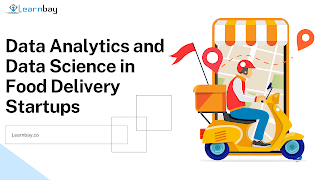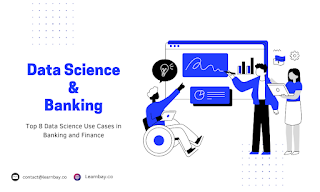Google uses Big Data to Know you: How is it
Google is the clear leader in the field of big data. In the big data ecosystem, they have created a number of open-source tools and methods that are widely utilized. Google can now quickly and accurately find the information you need by scanning through millions of websites using various big data technologies and methodologies. We immediately wonder how Google is able to carry out such complicated tasks so well.
Big data analytics is the solution. Google analyzes our needs using Big Data tools and approaches based on various factors, including search history, locations, trends, and so on. Google then provides the sorted or ranked search results in relevancy and authority according to the user's demand after passing it via an algorithm that performs intricate calculations.
Google has long aimed to create a search engine that can comprehend each search query's terms, reasoning, and objective. Google's ability to explore beyond the literal meaning of every term in a search query has been made possible via semantics. This has led us to wonder how exactly data science and big data help in this process. To get a detailed explanation, you can refer to the advanced data science course in Bangalore.
Google has employed the following strategies to carry out the challenging task of comprehending the user's requirements and preferences:
Indexed Pages
The group of web pages kept to reply to search queries are referred to as indexed pages. The process of indexing involves including websites in the Google search index. It entails adding keywords or phrases in a metadata tag or meta-tag and assigning them to web pages so that they may be quickly found using a search engine designed to look in the keywords field. Following the meta-tag creation, Google will crawl and index your website. Each new website must wait between 4 days and 4 weeks for Google to crawl and index it.
Real-time Data Feeds
Google is essentially a set of tools and data collection, although not advertising itself as such. A single hub for real-time data feeds on virtually anything that can be measured, including weather reports, travel reports, stock market and share prices, retail recommendations, vacation ideas, and many other things. It has evolved from being merely an index of websites.
Sorting Tools
When consumers do a search query, big data analysis, which entails using technologies designed to deal with and interpret this huge data, plays a crucial role. The Google algorithms do intricate computations to match the user's inquiries with all accessible data. It will try to ascertain if the user is looking for news, persons, facts, or statistics before retrieving the relevant feed's data.
Knowledge Graph Pages
A program or database called Google Knowledge Graph gathers all the information and facts about people, places, and things and the correct distinction and relationships between them. Google uses it subsequently to provide us with useful responses to our requests. Users benefit from Google Knowledge Graph's user-centric approach and rapid access to important information.
Literal & Semantic search
The literal search engine's primary goal is to locate the root of your search term by looking for a match for any part of the word or phrase. The phrase's root is then investigated to present better search results. By examining the phrases and language in the knowledge graph database, the semantic search engine attempts to instantly grasp the context of the phrase to respond to a query with relevant material.
Tracking Cookies
Cookies allow Google to monitor users around the internet. If a person simultaneously views other websites while logged in or signed up with Google, Google may be able to track the websites they visit. Google uses tracking cookies to keep track of its users online. Google is able to gather a variety of information on users, including their preferences, propensities, favorites, needs, etc. Google considers all of those data whenever a user searches before showing the results in the appropriate order.
Google+
Google leverages your search history, trends, and location when you sign in to your account to deliver precise search results. Google gathers all the information pertaining to how frequently websites are visited, the search terms used, the times, the data downloaded, etc. Google then streamlines the search results based on several conditions.
Synonyms
A system that evaluates the terms' roots and relationships based on historical search history, patterns, and relationships to one another helps people understand them.
Google Translate
Google calls upon additional built-in algorithms based on Big Data for complicated processes like translation. The Google Translate service examines millions of other translated texts and audio files for the best accurate interpretation.
Google Adwords
While advertising through the Google Adwords service, businesses of all sizes, from small to large, frequently employ Big Data analytics. Every time a person visits a new page, Google learns about their preferences, likes, dislikes, inclinations, etc. It uses that information to display multiple advertisements for goods and services they might find interesting.
When advertisers use Google Adwords and other services, like Google Analytics, to entice customers who suit their customer profile to their websites and businesses, they are granted access to big data analytics.
Ranking and Prioritizing the Search Results
Your search results are ranked based on a wide range of various parameters. When determining relevance, Google looks at the following elements of a website's content, including:
Relationships between website structure and page structure
Relevance of external links
Relevance of internal links
Conclusion
It won't be incorrect to say that Big Data analytics is the reason Google knows all there is to know about us. In reality, Google has mastered the field of big data analytics and has created a number of tools and strategies to collect user data, including preferences, likes, dislikes, areas of expertise, needs, etc. In addition to gathering these crucial pieces of information, Google processes them fast and effectively to provide us with relevant search results for each inquiry. If you want to be an expert in data analytics tools and techniques, sign up for the advanced data analytics course in Bangalore and earn IBM certification.




Comments
Post a Comment